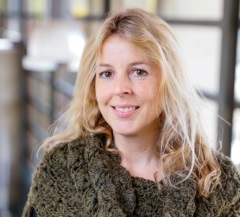Today, on International Women’s Day, we’re delighted to continue our latest news post series Meet the PIs by sharing an interview with one of the leading women in the MOSAICS network: Dr. Wendy Huinck.
Based at Radboud University Medical Centre (Radboudumc), one of the two beneficiaries in the MOSAICS project, Wendy is one of the MOSAICS ESRs‘ main supervisors. Below she shares her thoughts on what this role has meant for her so far, what surprised her, what she has learnt along the way and what advice she would give to an aspiring early-career researcher in her field.

Being able to contribute to improved hearing for people with a hearing loss is what drives me. It brought and keeps me into this field.
Wendy Huinck
What is an aspect of hearing-related research that still fascinates you today as it did when you first encountered it? The impact of hearing loss on quality of life remains (often) unseen in society, despite all research that has been performed and knowledge that is available.
Is this also what brought you into this field of science? Yes, indeed, being able to contribute to improved hearing for people with a hearing loss is what drives me. It brought and keeps me into this field.
What is your role in MOSAICS and what are your key responsibilities within the project? Together with Emmanuel from Radboudumc and Birgit, Bas and Filiep from Cochlear I co-created the MOSAICS project. I’m guiding the ESRs in their scientific journey and guide them through their training program. Within MOSAICS I’m in the lead for WP Brain, train, and sustain and WP Training. As a co-promotor / supervisor I help the ESRs to finalize a doctorate thesis and acquire a doctoral degree at the Radboud University.
I hope that the MOSAICS ESRs will find their way in either academic or industry positions and that they will be able to use both their academic and industrial experience in their further career path.
Are there any aspects of working within an MSCA EID that surprised you? The project is quite demanding in terms of time and preparation. It takes a lot of time guiding the ESRs, this is great and inspiring to do. Working together with this group of experienced professionals with different backgrounds has added significant value to both beneficiaries, secondment supervisors as well as the ESRs. The administrative workload is more than I expected.
What is your goal for your ESR(s)? What is it that you want them to take away from this experience as part of MOSAICS?
I hope that the MOSAICS ESRs will find their way in either academic or industry positions and that they will be able to use both their academic and industrial experience in their further career path. Finalizing a doctorate degree would be a nice achievement.
What is the biggest challenge you face as a supervisor, and what has it taught you?
Keeping up with the progress when the ESR is working at the other beneficiary or abroad during their secondment is sometimes challenging. Online meetings though are very helpful.
If you could give one key piece of advice to an aspiring early-career researcher in your field, what would that be? Make sure you keep your supervisors aligned. Be proactive in planning meetings and sharing ideas, questions, worries etc. and make use of their knowledge as much as possible.
If you could collaborate with any other field of science, which would interest you the most? Cognitive neuroscience.
We warmly thank Wendy for sharing her thoughts in this interview and for being a great role model for aspiring women. Stay tuned for the next piece in the series!
